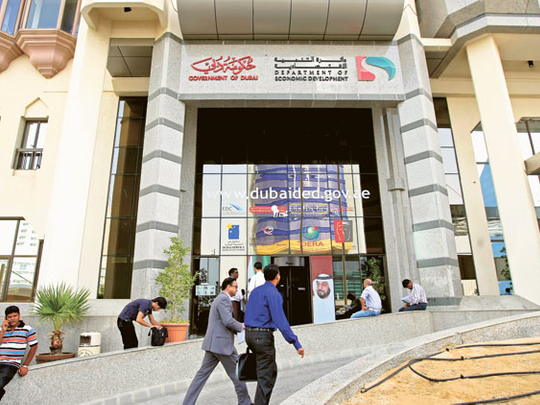
Dubai: Small and mid-sized businesses of foreign origin wanting a piece of the action in the UAE — or at least an operating address — are spoilt for choice.
Should they opt for a base within the city now that the UAE is amending its Companies Law to allow foreign businesses more than the 49 per cent stake they are allowed now? (But this change could come with a caveat in that only businesses in select industries are allowed to do so. The industries have not been named so far.)
But beyond the actual equity stake, foreign businesses setting up shop in the UAE could also get to decide for themselves whether they needed to appoint a "service agent" for this market.
The businesses "may have the option of whether or not to appoint," said John Martin St Valery, CEO of The Links Group, a business advisory firm. "This was tested in the past, but it quickly became apparent that some form of local assistance — generally through a simple services agreement — is required for labour and immigration services.
It is highly unlikely that this situation will change."
If they are still undecided about an "onshore" option, does it make better commercial sense for overseas SMEs to come in through a free zone and thus retain full control of their operations?
The answer to each situation would depend on the overriding priorities of the individual business.
"It is a costly mistake to make to be enticed by free zone benefits — such as ownership structure — if that is not the correct locale for the business," said St Valery.
At the same time, "In the case of businesses that do comply with the free zone model this can be a very attractive proposition.
"Costs aside, an incoming company needs to ascertain whether the audience for their product or service is based ‘onshore', regionally or internationally.
Free zones
"The free zone jurisdictions will remain attractive to those businesses which predominately trade outside the UAE or are among the businesses registered within its nominated zone.
"One obvious advantage is the guaranteed 50-year tax break, irrespective of any changes made to onshore legislation."
The many free zones in the UAE have been making concerted pitches, particularly in the last two years, to tap interest among foreign SMEs to come in as tenants. It marked a gradual shift on the part of the free zones from an overwhelming emphasis on the bigger corporate entities.
"Suddenly SMEs [small and medium enterprises] were getting all of the attention where earlier it tended to be muted or non-existent," said a partner at a law firm specialising in helping foreign businesses to set up operations in foreign territories. At the same time, governments — notably those in western Europe — were encouraging their SMEs to seek business opportunities in the UAE and the Gulf because of the better prospects here."
Business groups based here seem to be sharing that sentiment.
According to a survey conducted by the French Business Council and French Business Group among its members with operations in the UAE, more than 50 per cent expected positive and accelerating growth over the next six months. There was near unanimity in their positive view of the business potential in the Middle East over the next three years.
Neutral view
The confidence was based on their performance in the GCC and especially in the UAE and Saudi Arabia during 2011. As to the impact of the Arab Spring, respondents more or less held a neutral view, while 20 per cent deemed it as negative for their business.
"Gulf economies are looking up, property rentals are still soft and free zones are rolling out the red carpet. What more can a business want?"
Low office rentals
Even though office rentals are on the lower side now, overseas SMEs prospecting the UAE as a potential base could still do with some options on their real estate requirements. One of these has to do with the mandatory requirement that they should have a 12-month tenancy contract for the licences.
"A 12-month lease, when we take a look at the real requirements of micro or start-up businesses, often blows the budget out of the water," said John Martin St Valery of The Links Group.
"Continued flexibility when it comes to commercial real estate requirements is essential."
Currently, a 12-month lease of a business premises is required for any licence to be issued by the Department of Economic Development. There is no suggestion that this is due to change under the new Companies Law.












